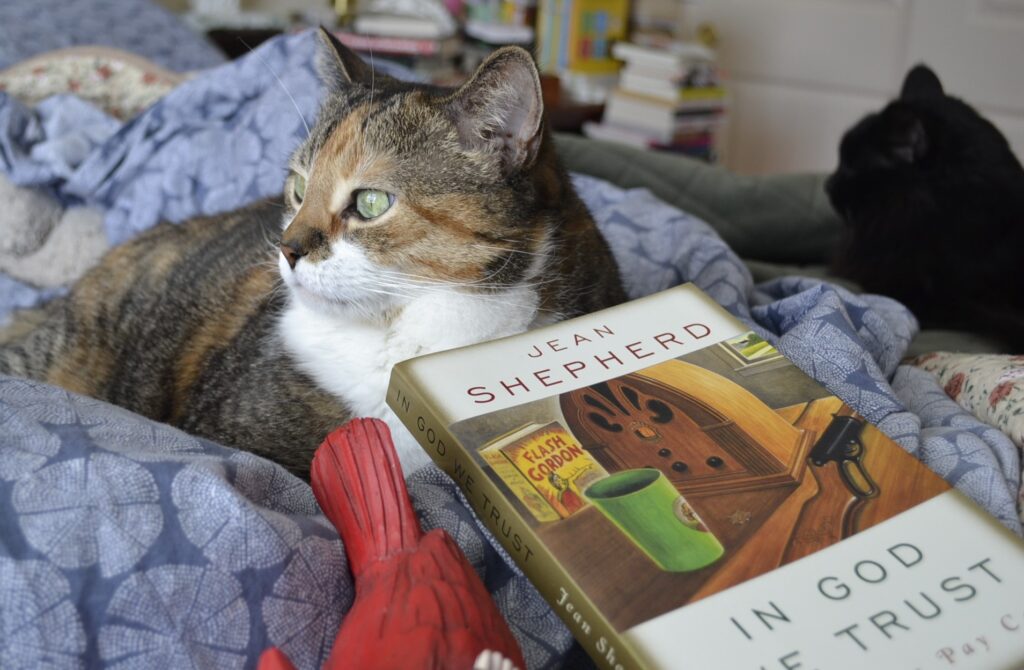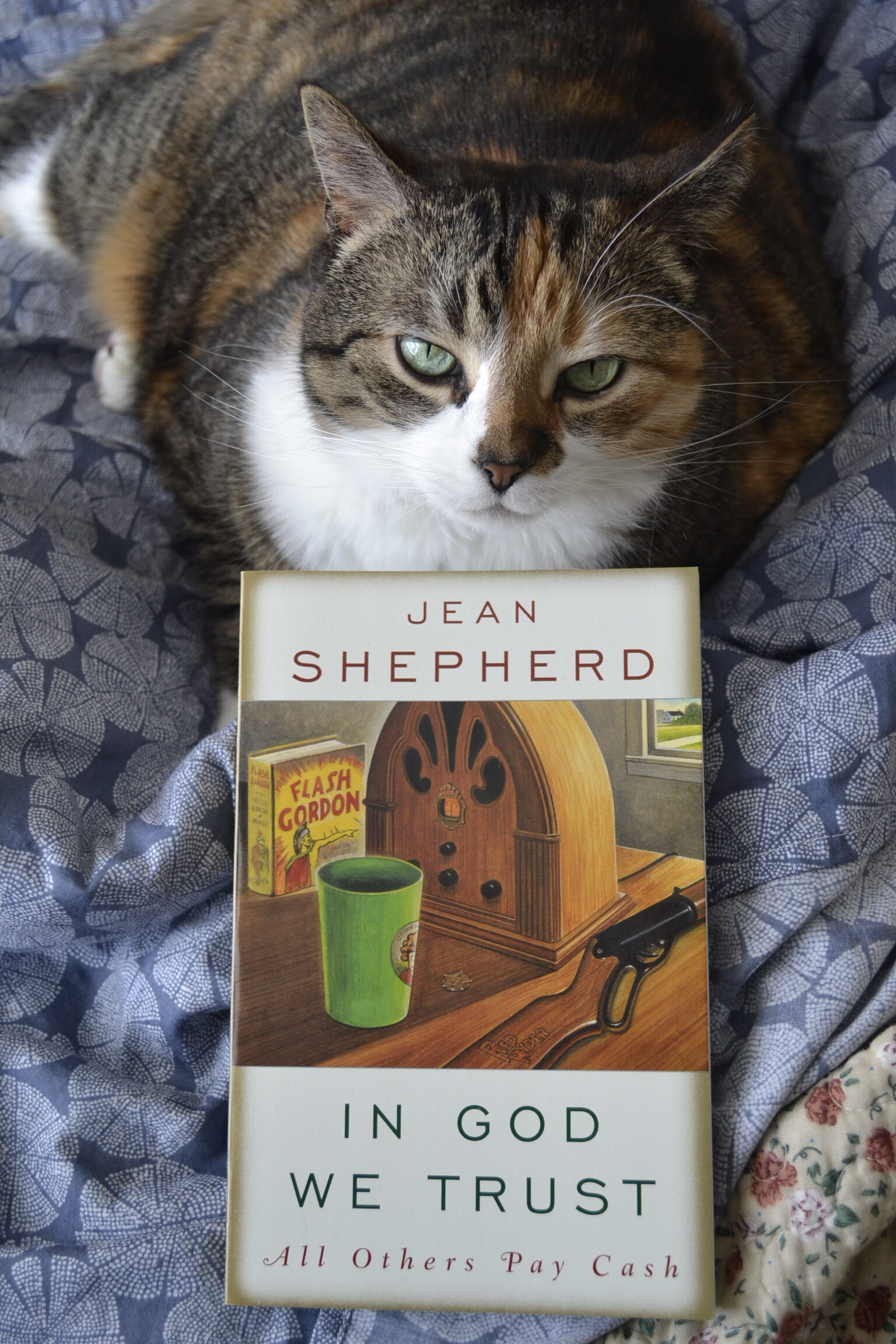Christmas Lights in a Blizzard
So, I already knew that we were pretty far behind this year in terms of winterizing the house and yard. There’s a bag of soil and a bag of mulch sitting in the driveway and leaves in the eavestroughs that needed to be dealt with. Silly me, I forgot that I live in Canada and thought that winter would be polite and gradual. It wasn’t. It was a blizzard and a sudden dump of more than a foot of snow.
The essential chores got done — the lights got up even though we both froze in the blowing snow, and the eaves got cleaned even if we had to use a hand trowel from the rose bush to chisel out the leftover leaves. We couldn’t feel our fingers when we got inside and it was nearly dark, but at least we’ll have a good story to tell at upcoming family gatherings and I hope I have learned a lesson when it comes to next year’s priority chore list. Though knowing myself, I probably haven’t learned a damn thing.
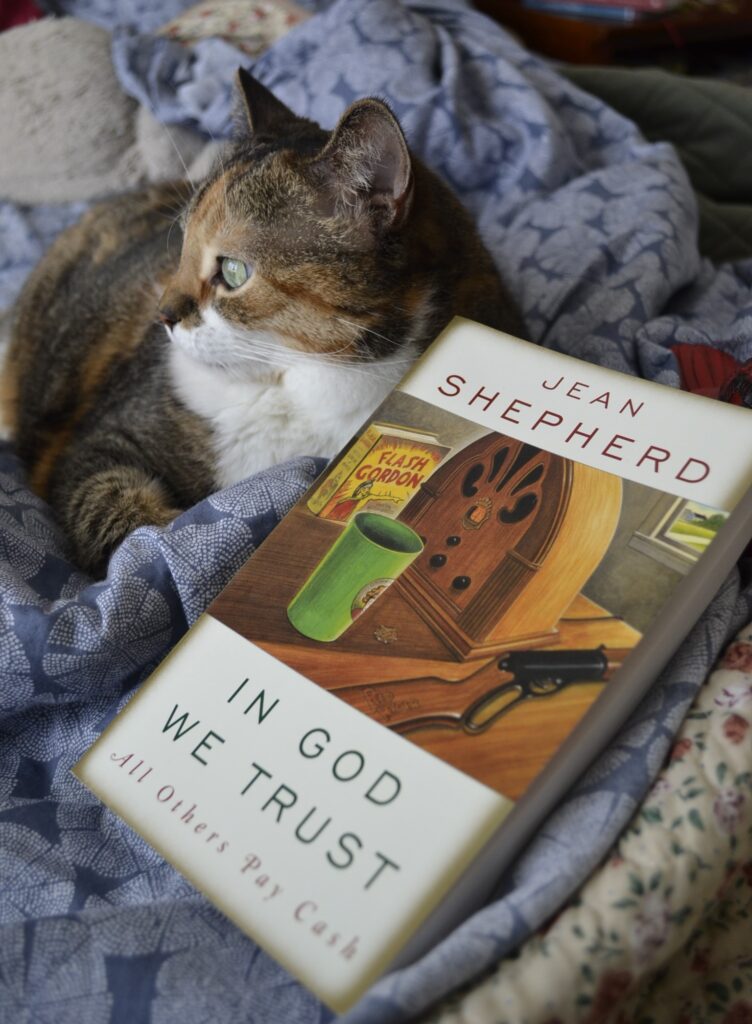
A Film that Becomes Tradition
A Christmas Story directed by Bob Clark and released in 1983 has become an essential part of many people’s holiday season. A trip back to the past where life is depicted as simpler and full of hi-jinks like getting stuck to metal poles with your tongue and trying to prove you won’t shoot your eye out with a toy that is definitely capable of shooting your eye out. The film has a lot of warm humour about the foibles and frustrations of the holiday season and does a great job capturing just what childhood Christmases felt like.
I have been looking for the book that the film is based on for what feels like forever. Though it’s easy to get a hold of in the United States, in Canada it is somewhat harder to come by. It was actually on a shopping trip for my birthday that I found it just sitting on a shelf. However, I will say that I soon found out why it’s rare. More on that in my next point.
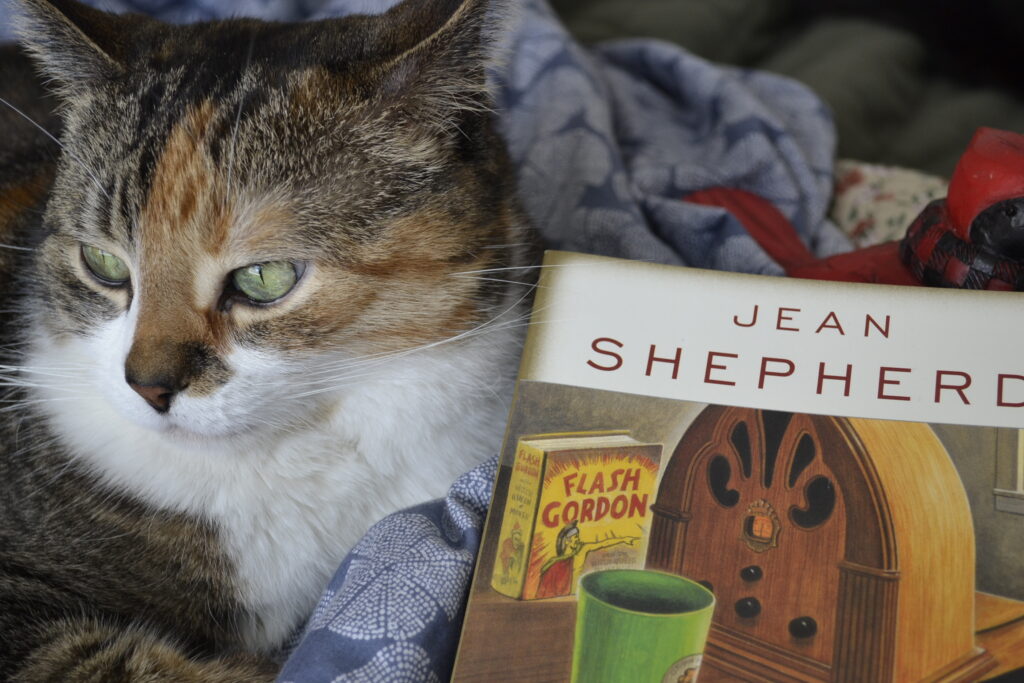
The Book
A Christmas Story is loosely based around four stories from In God We Trust: All Others Pay Cash by Jean Shepherd, and there’s a lot that Clark has added to these stories (and taken out of them) in order to arrive at the masterpiece of film he has produced. He’s done a lot with the original material — which means that reading the original material leaves a lot to be desired. Jean Shepherd was a humourist that often wrote for magazines like Playboy, and, considering the content of these essays, I am unsurprised that’s where he found a lot of his audience. These tales are not pornographic and there is a lot of useful commentary on what the world of 1930s and 1940s was like through the eyes of a child growing up at that time. Products. Radio programs. The rhythm of everyday life. All of that is here.
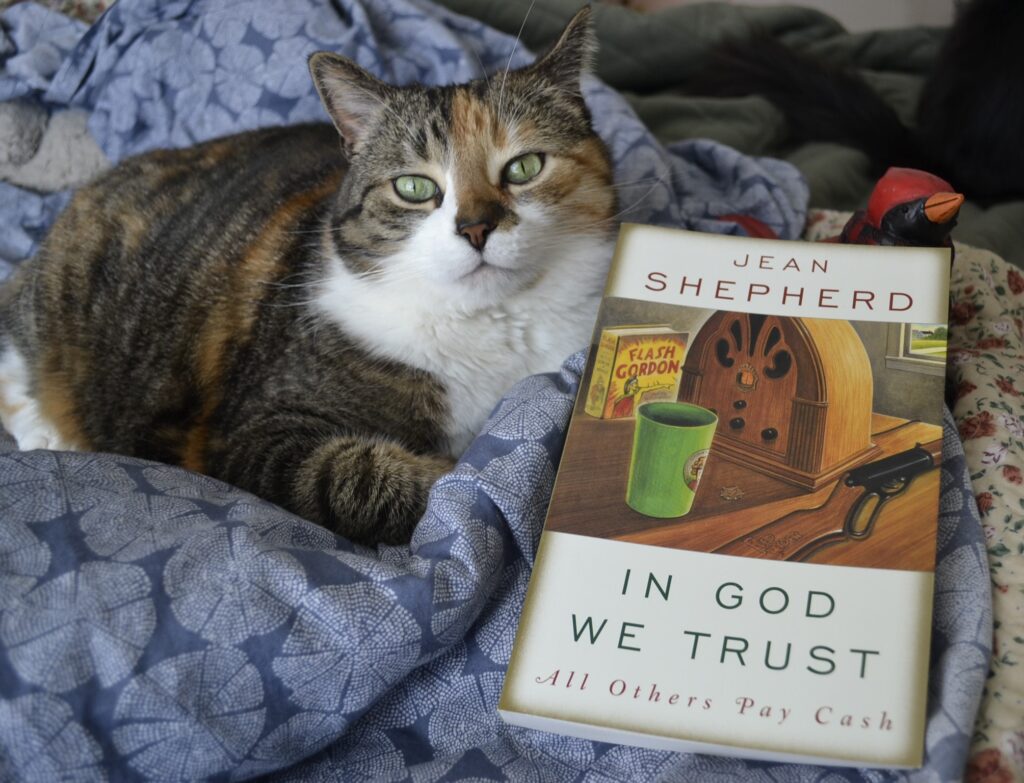
What’s also here? A lot of racism, misogyny, homophobia, and offensive pig-headedness. There’s a lot of offensive language to be aware of, and there’s a lot of hate for anything not male, straight, and white. Women are not people; they are just mothers, or else girls. They do not have childhoods, according to Shepherd. The racism is appalling. The homophobia and homophobic language would not be acceptable even for 1970s sensibilities. Shepherd is only interested in one perspective and one experience — his. Heaven forbid that you have any other opinion or any other reality — that is just too much for him to bear and he leaves no space for that.
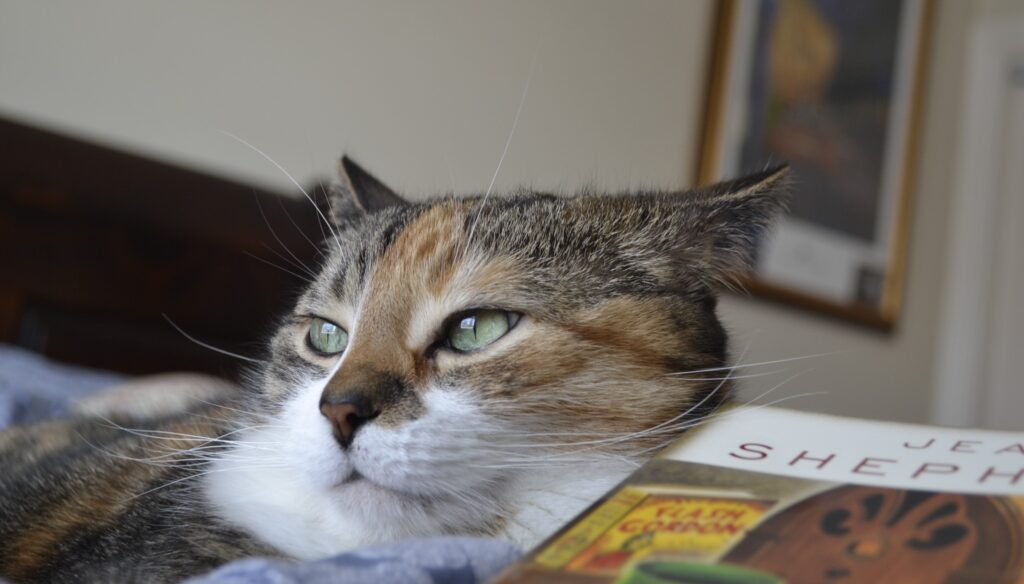
A Comparison
A Christmas Story is a magical film, but when comparing it to the book there is a stark lesson to be learned here: The past was never simple and never innocent. There is no magical point where life was easier. In fact, the past was a lot worse of a place for women, for people of colour, and for anyone who wasn’t straight or gender-conforming (not that things are exactly sunshine and rainbows in the present). Shepherd’s book is a prime example of the ugliness of the past right up against all of that nostalgic glow.
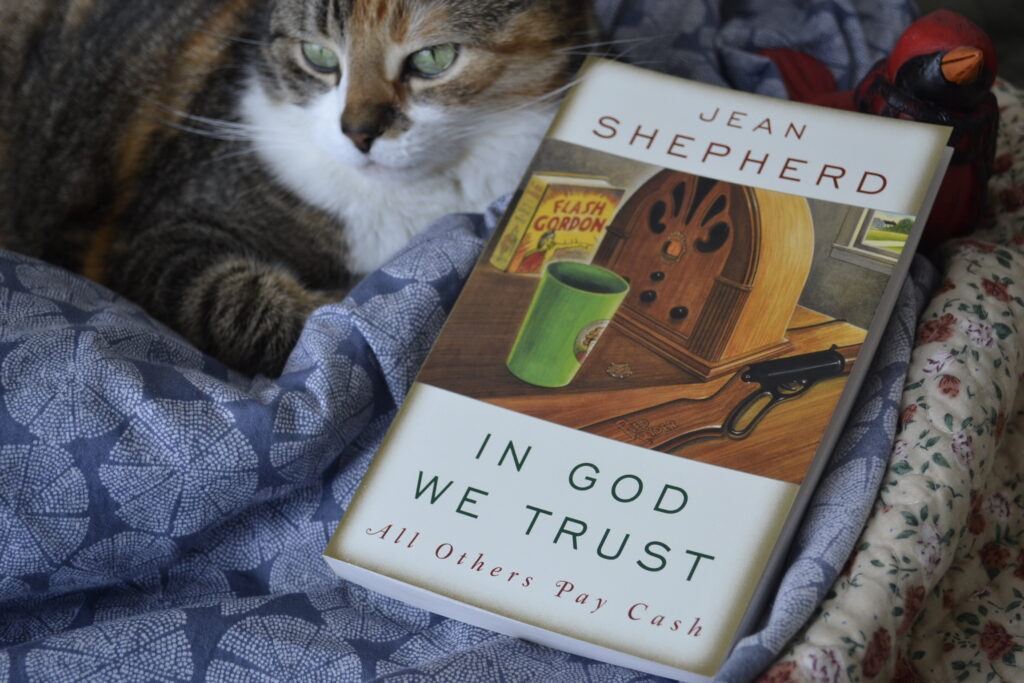
Even the way it opens is grimy compared to the film — Ralph is a disillusioned writer visiting family, and Flick now owns a bar. They are both disillusioned with the town and family and life in general and retreat to the ‘good old days’ as a way of escaping their hopeless present. However, this past is little more than a rather disconcerting ode to American boyhood at the expense of everything and everyone else.
My advice? Enjoy the film, but only seek out the book if you really want a deep dive into what passed as ‘edgy’ humour in 1966 and are more than prepared to be potentially throwing this book at the wall.
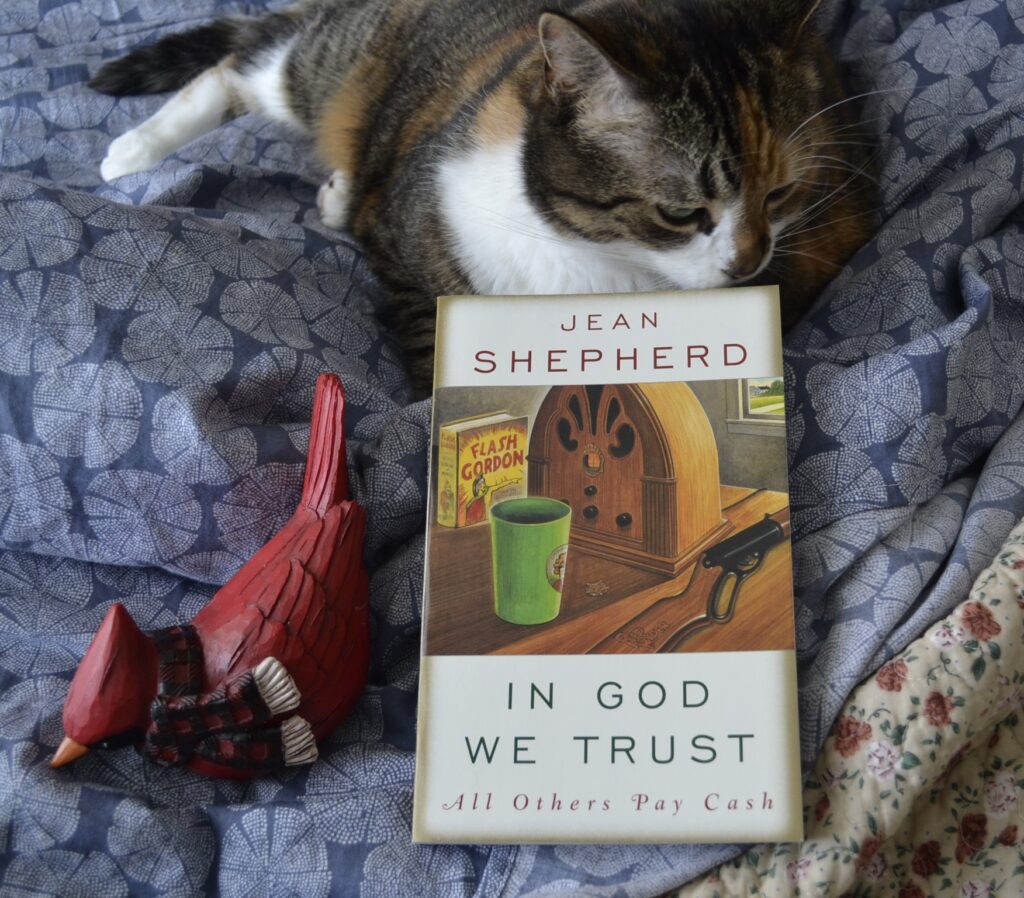
But Will It Last?
The thing about this prodigious amount of snow at the beginning of December is that you always wonder if it will last. Sometimes life throws you lemons, and you end up with a green Christmas anyway — even though, as I look out the window now, it feels like that should not be possible.
We did get a piece of good news this week — Wesker’s bloodwork and urinalysis both show an improvement in her kidneys and no thyroid issues, which is fantastic! She is losing a bit of weight as she ages, which we will have to keep our eye on, but so far she’s doing well. That’s one of the best Christmas presents I could ask for.
